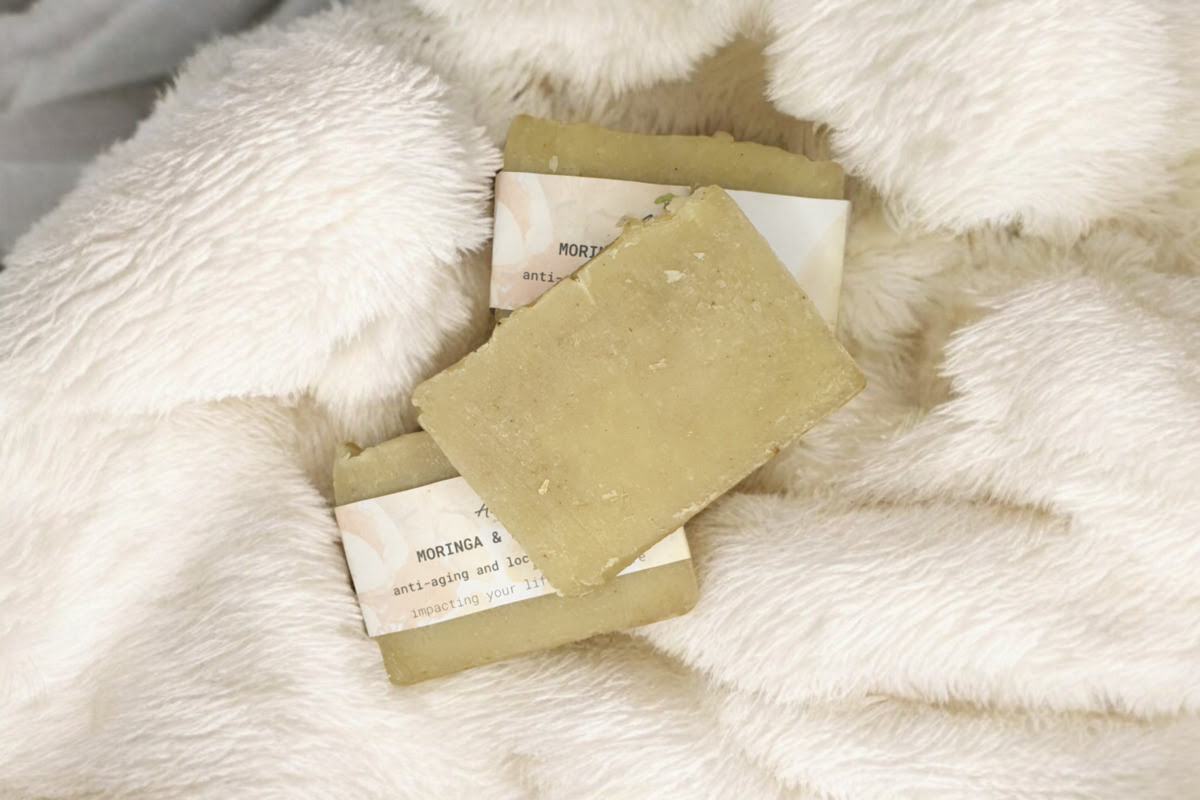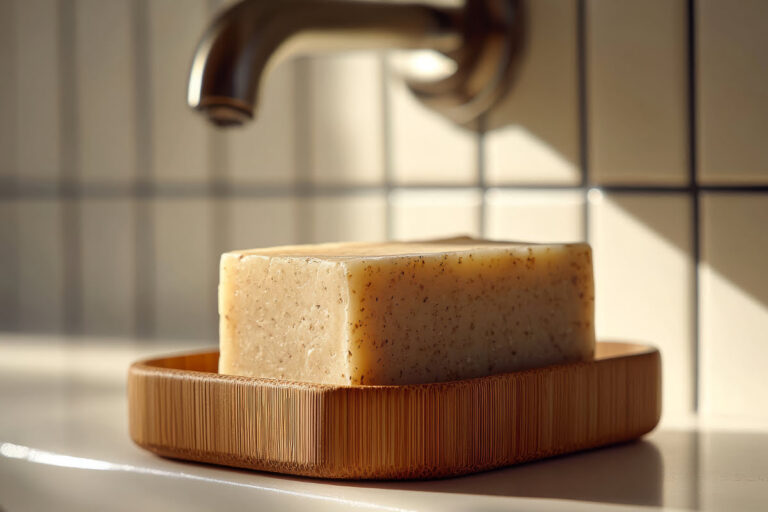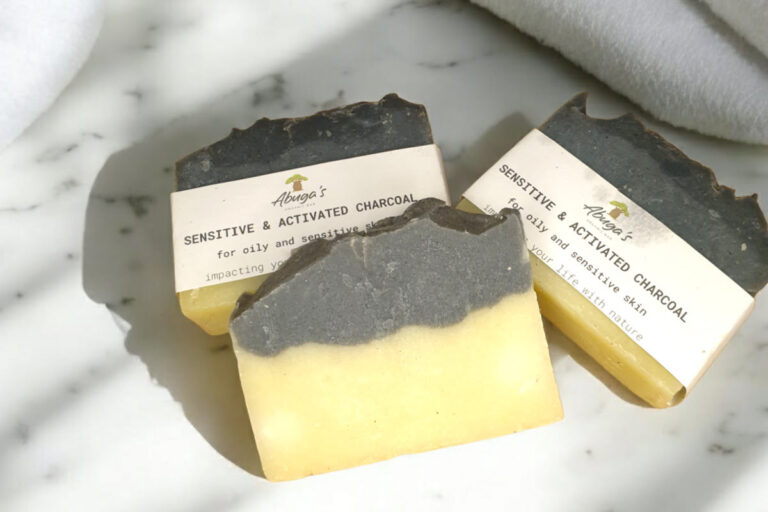Have you ever wondered what really goes into that bar of soap you use to shower every day? As someone who’s spent years researching and testing various skincare products, I can tell you that the differences between organic and conventional soaps are more significant than you might think. Let’s dive into the world of soap and uncover why making the switch to organic could be one of the best decisions for your skin and the environment.
1. Ingredients: Natural vs. Synthetic
Organic Soap Ingredients
When you pick up a bar of organic soap, you’re holding a piece of nature in your hands. These soaps are crafted with plant-based oils like coconut, olive, and palm, which are rich in natural glycerin. I’ve found that organic soaps often include nourishing ingredients such as shea butter, which is renowned for its moisturizing properties.
What you won’t find in organic soaps are harsh synthetic fragrances or preservatives. Instead, you’ll encounter essential oils that not only smell wonderful but also offer therapeutic benefits. For instance, lavender essential oil can help calm your skin and your mind.
Soaps like the ones I produce at Abuga’s Organic Bar go even further. They are 100 percent fragrance-free and I don’t add any essential oils just in case you have extra-sensitive skin.
Conventional Soap Ingredients
On the flip side, conventional soaps are often a cocktail of synthetic ingredients. Many contain sodium lauryl sulfate (SLS) and sodium laureth sulfate (SLES), which are responsible for that rich lather we’ve been conditioned to expect. However, long-term exposure to these sulfates can strip your skin of natural oils, leading to dryness and irritation.
I’ve also noticed that many conventional soaps contain artificial fragrances and colors. While these might make the soap look and smell appealing, they can be harsh on your skin and potentially trigger allergic reactions.
2. Impact on Skin Health
Gentleness of Organic Soaps
One of the most compelling reasons to choose organic soap is its gentleness on your skin. The natural ingredients in organic soaps work with your skin’s natural chemistry rather than against it. If you have sensitive skin like I do, you’ll appreciate how organic soaps cleanse without causing irritation.

Moreover, the moisturizing properties of ingredients like coconut oil and shea butter can leave your skin feeling soft and nourished. I’ve found that since switching to organic soap, I rarely need to apply lotion after showering.
Potential Risks of Conventional Soaps
With their harsh detergents, conventional soaps can disrupt your skin’s natural balance. They often remove too much of your skin’s natural oils, leading to dryness, itching, and even exacerbating conditions like eczema.
Some conventional soaps also contain triclosan, an antibacterial agent linked to hormone disruption and the development of antibiotic-resistant bacteria. It’s worth noting that the FDA has banned triclosan from over-the-counter consumer antiseptic products in the US, but it may still be present in some conventional soaps.
3. Environmental Impact
Sustainability in Organic Soap Production
When you choose organic soap, you’re not just being kind to your skin but also making an eco-friendly choice. Organic soap production typically involves sustainable practices, from sourcing ingredients to packaging.
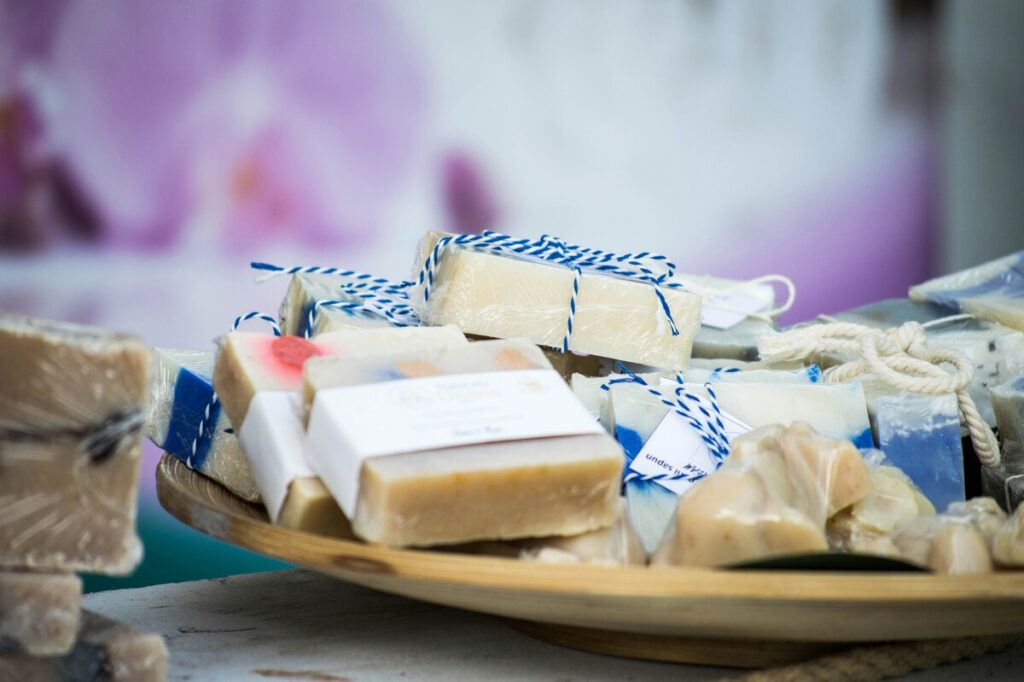
Many organic soap makers, myself included, opt for biodegradable packaging or minimal packaging to reduce waste. The ingredients used are often grown without harmful pesticides, which is better for the soil and surrounding ecosystems.
Environmental Concerns with Conventional Soaps
Conventional soaps, unfortunately, can have a significant negative impact on the environment. The synthetic chemicals they contain don’t break down easily and can accumulate in waterways, harming aquatic life. I’ve read studies showing that ingredients like triclosan can persist in the environment for years, potentially disrupting ecosystems.
Moreover, the mass production of conventional soaps often involves practices that are less than eco-friendly, from energy-intensive manufacturing processes to excessive packaging.
4. Effectiveness and Performance
Cleansing Power of Organic Soaps
Don’t be fooled into thinking that organic soaps are less effective at cleaning. In my experience, they clean just as well as conventional soaps, if not better. The natural oils in organic soaps can help dissolve dirt and grime more effectively than harsh detergents.
What’s more, many organic soaps contain ingredients with natural antibacterial properties. Tea tree oil, for example, is known for its ability to fight bacteria and fungi without contributing to antibiotic resistance.
Lather and Feel of Conventional Soaps
It’s true that conventional soaps often produce more lather than their organic counterparts. However, it’s important to understand that lather doesn’t equal cleanliness. The rich foam you get from conventional soaps is often due to synthetic foaming agents like SLS.
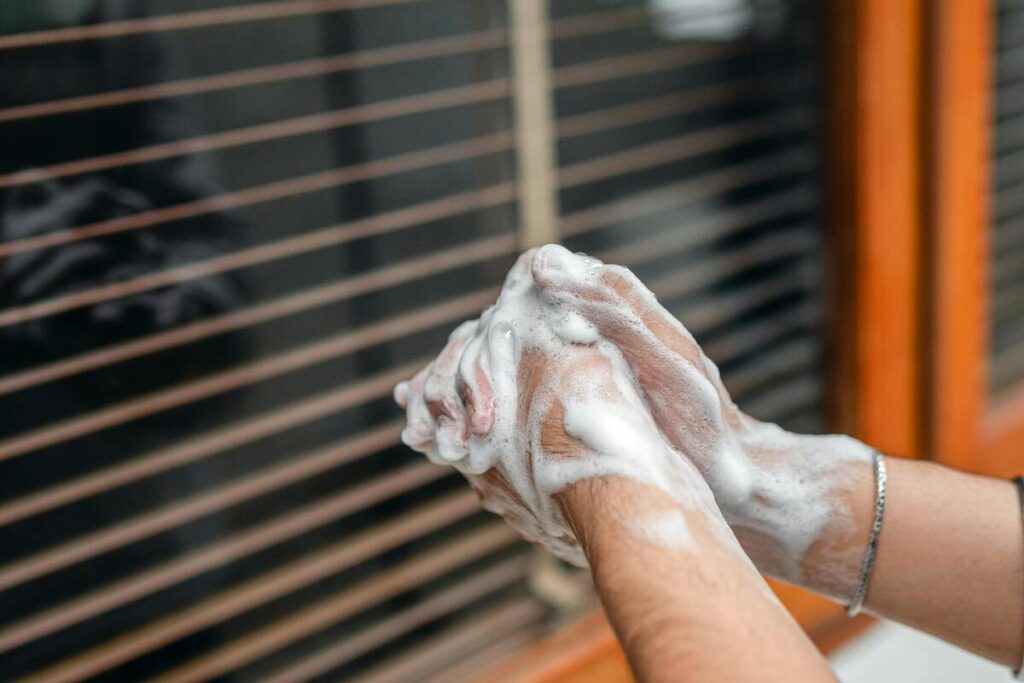
While this lather might feel satisfying, it’s not necessary for effective cleaning. In fact, I’ve found that the creamy lather of most organic soaps, though less abundant, leaves my skin feeling cleaner and more comfortable. For my soaps, I recently managed to find the perfect mix to ensure they produce more lather than most conventional soaps.
5. Production Methods and Certification
Traditional Soap Making vs. Industrial Processes
Organic soaps are often made using traditional methods, such as the cold process method. This involves combining oils with lye to create soap through a chemical reaction called saponification. It’s a time-honored technique that preserves the natural goodness of the ingredients.
In contrast, many conventional soaps are made through industrial processes that may involve synthetic detergents and other chemicals. These methods are efficient for mass production but often result in a product that’s less beneficial for your skin.
Organic Certification and Standards
When shopping for organic soaps, look for certifications from reputable organizations. These certifications ensure that the soap meets specific standards for organic ingredients and production methods. In my experience, certified organic soaps are consistently higher in quality and more beneficial for your skin.
6. Economic and Social Impact
Choosing organic soap can have a positive impact beyond your bathroom. By supporting local, organic soap makers like us, you’re contributing to local economies and encouraging sustainable business practices. Many organic soap companies are small businesses that prioritize fair trade and ethical sourcing of ingredients.
Go For Organic Soaps Whenever You Can
The differences between organic and conventional soaps are stark. From the ingredients they contain to their impact on your skin and the environment, organic soaps offer numerous benefits. Even though they may cost a bit more upfront, I believe the investment in your health and the planet is well worth it. So next time you’re shopping for soap, why not give organic like the ones I offer a try?

